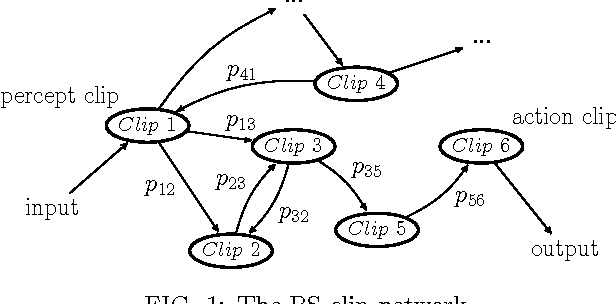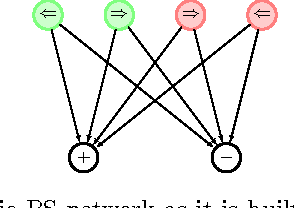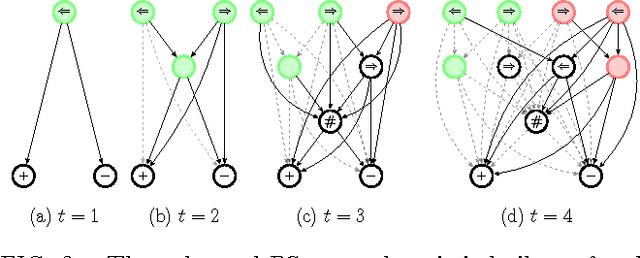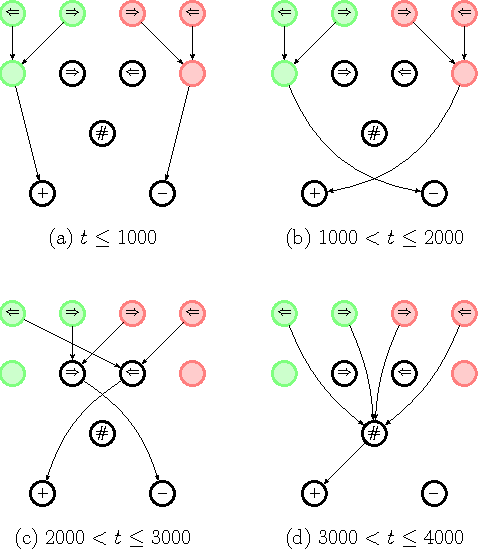Projective simulation with generalization
Paper and Code
Oct 31, 2017



The ability to generalize is an important feature of any intelligent agent. Not only because it may allow the agent to cope with large amounts of data, but also because in some environments, an agent with no generalization capabilities cannot learn. In this work we outline several criteria for generalization, and present a dynamic and autonomous machinery that enables projective simulation agents to meaningfully generalize. Projective simulation, a novel, physical approach to artificial intelligence, was recently shown to perform well in standard reinforcement learning problems, with applications in advanced robotics as well as quantum experiments. Both the basic projective simulation model and the presented generalization machinery are based on very simple principles. This allows us to provide a full analytical analysis of the agent's performance and to illustrate the benefit the agent gains by generalizing. Specifically, we show that already in basic (but extreme) environments, learning without generalization may be impossible, and demonstrate how the presented generalization machinery enables the projective simulation agent to learn.
 Add to Chrome
Add to Chrome Add to Firefox
Add to Firefox Add to Edge
Add to Edge